Кэндес Бушнелл - One Fifth Avenue
Здесь есть возможность читать онлайн «Кэндес Бушнелл - One Fifth Avenue» весь текст электронной книги совершенно бесплатно (целиком полную версию без сокращений). В некоторых случаях можно слушать аудио, скачать через торрент в формате fb2 и присутствует краткое содержание. Жанр: Современные любовные романы, на английском языке. Описание произведения, (предисловие) а так же отзывы посетителей доступны на портале библиотеки ЛибКат.
- Название:One Fifth Avenue
- Автор:
- Жанр:
- Год:неизвестен
- ISBN:нет данных
- Рейтинг книги:4 / 5. Голосов: 1
-
Избранное:Добавить в избранное
- Отзывы:
-
Ваша оценка:
- 80
- 1
- 2
- 3
- 4
- 5
One Fifth Avenue: краткое содержание, описание и аннотация
Предлагаем к чтению аннотацию, описание, краткое содержание или предисловие (зависит от того, что написал сам автор книги «One Fifth Avenue»). Если вы не нашли необходимую информацию о книге — напишите в комментариях, мы постараемся отыскать её.
One Fifth Avenue — читать онлайн бесплатно полную книгу (весь текст) целиком
Ниже представлен текст книги, разбитый по страницам. Система сохранения места последней прочитанной страницы, позволяет с удобством читать онлайн бесплатно книгу «One Fifth Avenue», без необходимости каждый раз заново искать на чём Вы остановились. Поставьте закладку, и сможете в любой момент перейти на страницу, на которой закончили чтение.
Интервал:
Закладка:
Meanwhile, on the street below, two Town Cars were slowly making their way down Fifth Avenue like a small cortege. When they reached One Fifth, the drivers got out and, hunched against the rain and shouting instructions and oaths, began pulling out the luggage. The first piece was an old-fashioned Louis Vuitton steamer trunk that required the efforts of two men to lift. Roberto, the doorman, hurried out, paused under the awning, and called for backup before waving the men inside. A porter came up from the basement, pushing a large cart with brass poles.
The drivers heaved the trunk onto the cart, and then one after another, each piece of matching luggage was piled on top.
Down the street, a strong gust of wind ripped an umbrella out of the hands of a businessman, turning it inside out. It scuttled across the pave-ment like a witch’s broom, coming to rest on the wheel of a shiny black SUV that had just pulled up to the entrance. Spotting the passenger in the backseat, Roberto decided to brave the rain. Picking up a green-and-white golf umbrella, he brandished it like a sword as he hurried out from under the awning. Reaching the SUV, he angled it expertly against the wind so as to protect the emerging passenger.
A blue-and-green brocade shoe with a kitten heel appeared, followed by the famous long legs, clad in narrow white jeans. Then a hand with the slim, elegant fingers of an artist; on the middle finger was a large aquamarine ring. At last Schiffer Diamond herself got out of the car. She hadn’t changed at all, Roberto thought, taking her hand to help her out.
“Hello, Roberto,” she said, as easily as if she’d been gone for two weeks instead of twenty years. “Crap weather, isn’t it?”
Act One
1
Billy Litchfield strolled by One Fifth at least twice a day. He once had a dog, a Wheaten terrier, that had been given to him by Mrs.
Houghton, who had raised Wheaten terriers on her estate on the Hudson. Wheaty had required two outings a day to the dog run in Washington Square Park, and Billy, who lived on Fifth Avenue just north of One Fifth, had developed the habit then of walking past One Fifth as part of his daily constitutional. One Fifth was one of his personal landmarks, a magnificent building constructed of a pale gray stone in the classic lines of the art deco era, and Billy, who had one foot in the new millennium and one foot in the café society of lore, had always admired it. “It shouldn’t matter where you live as long as where you live is decent,” he said to himself, but still, he aspired to live in One Fifth. He had aspired to live there for thirty-five years and had yet to make it.
For a short time, Billy had decided that aspiration was dead, or at least out of favor. This was just after 9/11, when the cynicism and shallowness that had beaten through the lifeblood of the city was interpreted as unnecessary cruelty, and it was all at once tacky to wish for anything other than world peace, and tacky not to appreciate what one had. But six years had passed, and like a racehorse, New York couldn’t be kept out of the gate, nor change its nature. While most of New York was in mourning, a secret society of bankers had brewed and stirred a giant cauldron of money, adding a dash of youth and computer technology, and voilà, a whole new class of the obscenely super-rich was born. This was perhaps bad for America, but it was good for Billy. Although a self-declared anachronism, lacking the appurtenances of what might be called a regular job, Billy acted as a sort of concierge to the very rich and successful, making introductions to decorators, art dealers, club impresarios, and members of the boards of both cultural establishments and apartment buildings. In addition to a nearly encyclopedic knowledge of art and antiquities, Billy was well versed in the finer points of jets and yachts, knew who owned what, where to go on vacation, and which restaurants to frequent.
Billy had very little money of his own, however. Possessing the fine nature of an aristocrat, Billy was a snob, especially when it came to money. He was happy to live among the rich and successful, to be witty at dinner and house parties, to advise what to say and how best to spend money, but he drew the line at soiling his own hands in the pursuit of filthy lucre.
And so, while he longed to live at One Fifth Avenue, he could never raise the desire in himself to make that pact with the devil to sell his soul for money. He was content in his rent-stabilized apartment for which he paid eleven hundred dollars a month. He often reminded himself that one didn’t actually need money when one had very rich friends.
Upon returning from the park, Billy usually felt soothed by the morning air. But on this particular morning in July, Billy was despondent.
While in the park he had sat down on a bench with The New York Times and discovered that his beloved Mrs. Houghton had passed away the night before. During the thunderstorm three days ago, Mrs. Houghton had been left out in the rain for no more than ten minutes, but it was still too late. A vicious pneumonia had set in, bringing her long life to a swift and speedy end and taking much of New York by surprise. Billy’s only consolation was that her obituary had appeared on the front page of the Times , which meant there were still one or two editors who remembered the traditions of a more refined age, when art mattered more than money, when one’s contribution to society was more important than showing off the toys of one’s wealth.
Thinking about Mrs. Houghton, Billy found himself lingering in front of One Fifth, staring up at the imposing facade. For years, One Fifth had been an unofficial club for successful artists of all kinds — the painters and writers and composers and conductors and actors and directors who possessed the creative energy that kept the city alive. Although not an artist herself, Mrs. Houghton, who had lived in the building since 1947, had been the arts’ biggest patron, founding organizations and donating millions to art institutions both large and small.
There were those who’d called her a saint.
In the past hour, the paparazzi apparently had decided a photograph of the building in which Mrs. Houghton had lived might be worth money, and had gathered in front of the entrance. As Billy took in the small group of photographers, badly dressed in misshapen T-shirts and jeans, his sensibilities were offended. All the best people are dead, he thought mournfully.
And then, since he was a New Yorker, his thoughts inevitably turned to real estate. What would happen to Mrs. Houghton’s apartment? he wondered. Her children were in their seventies. Her grandchildren, he supposed, would sell it and take the cash, having denuded most of the Houghton fortune over the years, a fortune, like so many old New York fortunes, that turned out to be not quite as impressive as it had been in the seventies and eighties. In the seventies, a million dollars could buy you just about anything you wanted. Now it barely paid for a birthday party.
How New York had changed, Billy thought.
“Money follows art, Billy,” Mrs. Houghton always said. “Money wants what it can’t buy. Class and talent. And remember that while there’s a talent for making money, it takes real talent to know how to spend it.
And that’s what you do so well, Billy.”
And now who would spend the money to buy the Houghton place?
It hadn’t been redecorated in at least twenty years, trapped in the chintz of the eighties. But the bones of the apartment were magnificent — and it was one of the grandest apartments in Manhattan, a proper triplex built for the original owner of One Fifth, which had once been a hotel. The apartment had twelve-foot ceilings and a ballroom with a marble fireplace, and wraparound terraces on all three floors.
Читать дальшеИнтервал:
Закладка:
Похожие книги на «One Fifth Avenue»
Представляем Вашему вниманию похожие книги на «One Fifth Avenue» списком для выбора. Мы отобрали схожую по названию и смыслу литературу в надежде предоставить читателям больше вариантов отыскать новые, интересные, ещё непрочитанные произведения.
Обсуждение, отзывы о книге «One Fifth Avenue» и просто собственные мнения читателей. Оставьте ваши комментарии, напишите, что Вы думаете о произведении, его смысле или главных героях. Укажите что конкретно понравилось, а что нет, и почему Вы так считаете.
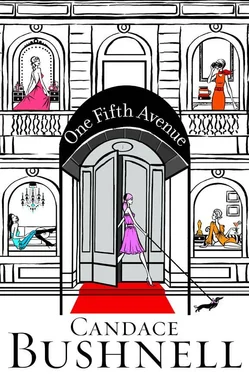
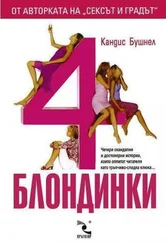

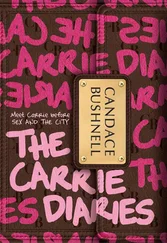

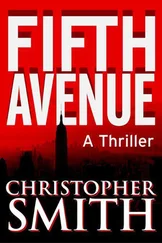
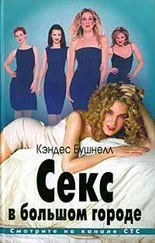
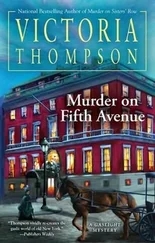
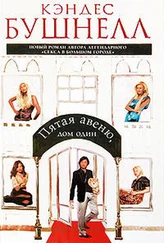



![Кэндес Бушнелл - Есть ли еще секс в большом городе? [litres]](/books/398473/kendes-bushnell-est-li-eche-seks-v-bolshom-gorode-thumb.webp)